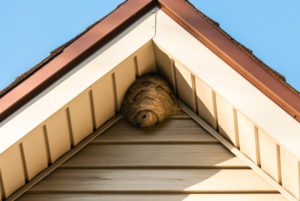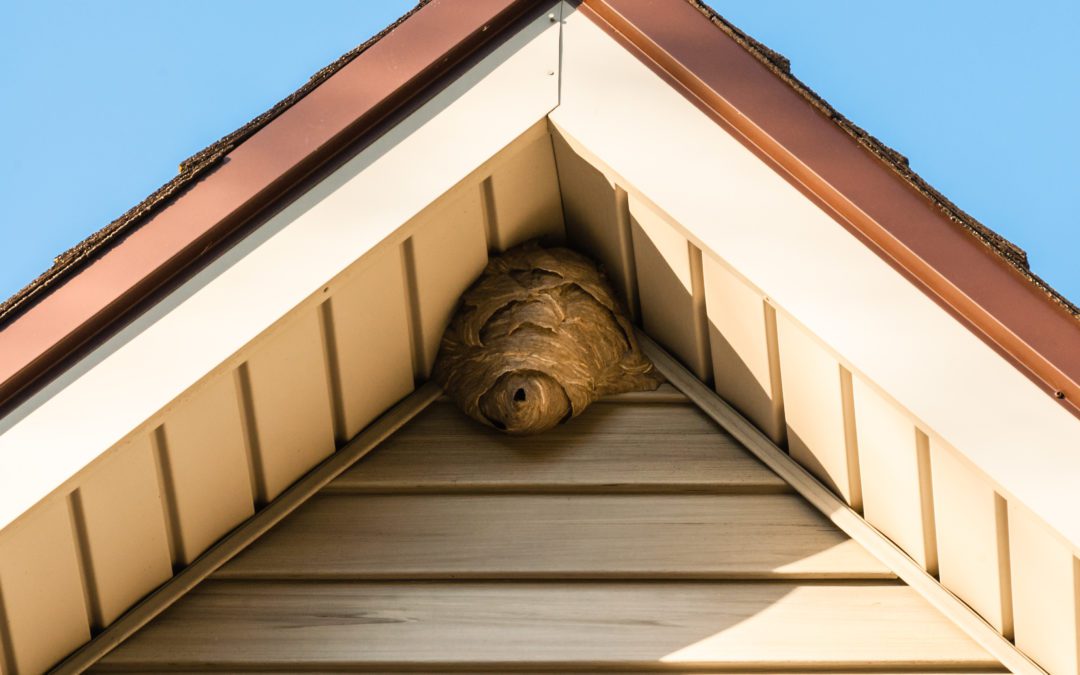
You’ve Found A Wasp’s Nest — Now What?
What does the nest look like?
Every species of stinging insect has its own unique style of hive, and observing the characteristics of the nest can help you determine what kind of insect you’re dealing with. If you see a papery, gray ball attached to an overhang of your house or a branch in your yard, the most likely culprit is bald-faced hornets. If the nest looks more like exposed honeycomb, those are probably paper wasps.
Where is the nest located?
Wasps are efficient hunters and help to control pest populations by eating insects like mosquitoes. So if a nest is situated in an area where the wasps are unlikely to come into contact with people, you may want to consider leaving it where it is since it may actually be benefitting your yard. However, if a nest is built on your house, patio, shed, or in a nearby tree, it is probably best to call an ABC Wildlife wasp nest removal specialist. Bald-faced hornets are one of the most aggressive species of stinging insect, and unlike bees who die after they sting, bald-faced hornets are able to attack over and over. Paper wasps, while less threatening than bald-faced hornets, are still a social species, and will attack when provoked in order to protect their queen.
Should I remove the nest myself?
A wasp’s number one priority is to protect its queen and her young, and if it senses any kind of threat, it will attack. A hive can house thousands of wasps, and homeowners attempting do-it-yourself wasp nest removal are putting themselves and others at great risk. Handling any kind of stinging insect is extremely hazardous and should be dealt with only by an experienced professional who has the proper equipment and training to remove the nest safely.
How can I prevent wasp nests?
The best method for keeping wasps off your property is to reduce viable sources of food. While wasps are primarily carnivorous, they are opportunistic feeders and have a sweet tooth. If you keep your trash bins outside, make sure your garbage is in a sealed plastic bag and that the lid is tightly secured to the can. Don’t leave food scraps or wrappers out after you’ve been eating on the deck or patio, and don’t leave any soda cans sitting outside. Following this rule can also prevent the need for skunk and raccoon removal and may help if you have a mouse problem.
If you see a wasp nest somewhere on your property, and you aren’t sure what your next step should be, feel free to call one of the helpful, knowledgeable team members at ABC Wildlife for a free consultation. Our staff is fully trained to offer stinging insect information, and our technicians have years of experience in wasp nest removal and prevention. They are even able to apply a solution that will prevent stinging insects from using your home as a building site. Don’t wait until your wasp problem becomes a threat to you and your family. Contact an ABC Wildlife professional today at (847) 870-7175.


